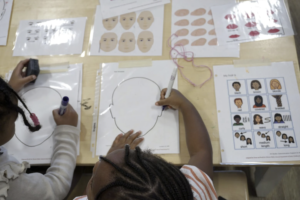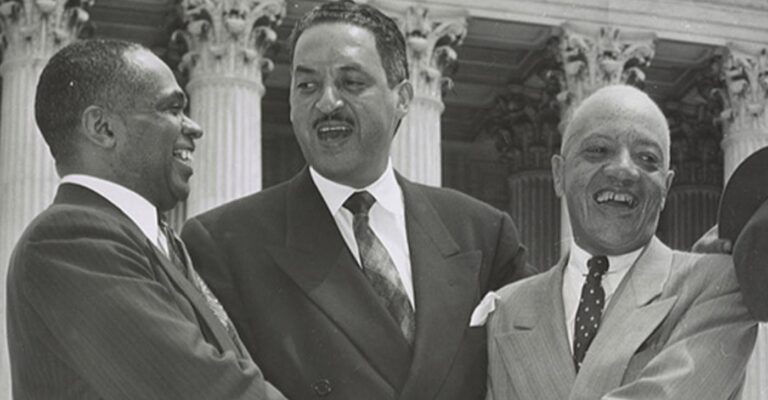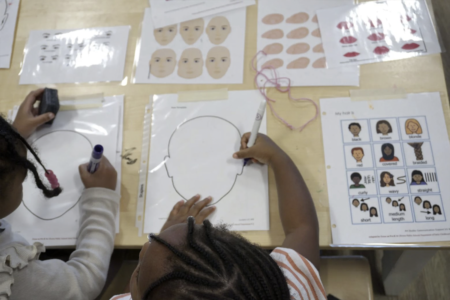By Rev. Norman Franklin | The Cincinnati Herald
Overview:
- The Brown vs. Board of Education decision in 1954 altered the social landscape in America, challenging segregation and promoting equality.
- Despite progress, current setbacks include extremist rhetoric, restrictive voter legislation, and efforts to prohibit accurate history in school curricula.
The Brown vs. Board of Education decision handed down by the Warren Court in 1954 changed the social landscape in America. Particularly in the southern region where Jim Crow laws mandated separation of the races.
The Fourteenth Amendment armed the former slaves with the constitutional rights of due process of law and equal protection of the law.
The Fifteenth Amendment gave the new citizens the right to vote. [Editor’s note: The 15th amendment, ratified on Feb. 3, 1870, gave the right to vote to all male citizens regardless of their ethnicity or prior slave status].
It was well into the twentieth century before the Fifteenth Amendment was fully exercised. It took decades of struggles, protest and demonstrations, and murder before the apartheid south was bought under the law of the 1965 Voting Rights Act.
Blacks would use the intent of these laws to challenge systemic social and political attitudes prohibiting the exercise of their constitutional rights.
The law was subject to interpretation. Interpretation of the law lays on the altar of perspective. For example, the recalcitrant White culture encoded Jim Crow laws to defy the rule of the new social order. Blacks, never obsequious, used the intent of the law to fight back.
Homer Plessy challenged Jim Crow laws that prohibited Blacks from the use of public facilities, from riding the same buses, and attending the same schools as Whites. Plessy refused to give up his seat to a White man on a train. He was jailed.
The Fourteenth Amendment case, Plessy vs. Ferguson, was argued before the US Supreme Court in 1896. Perspectives interpreted the law. In an 8-1 vote, the Justices upheld Jim Crow.
The majority agreed that the amendment was meant to enforce equality, which they viewed as political equality, but not social. “If one race be inferior to the other socially, the Constitution of the United States cannot put them upon the same plane.”
That perspective of “one race inferior” and separate but equal accommodations, governed well into the twentieth century.
The errant perspective of “intent of the law” employed to uphold separate but equal became the primary argument of the NAACP Legal Defense Team. Charles Hamilton Houston and Thurgood Marshall won a string of victories before the Supreme Court against Jim Crow laws.
They argued the intent of the law to defeat discrimination in institutions of higher education. The separate but equal and equal protection clauses were successfully argued in four cases before the Supreme Court from 1936 to 1950.
The string of victories sharpened the strategic genius of NAACP lead counsel, Thurgood Marshall.
Marshall had five cases before the Supreme Court of the United States in 1952. Each challenged the constitutionality of state-sponsored segregation in public schools.
The Supreme Court consolidated the five cases under Brown vs. Board of Education.
Separate school systems for Blacks and Whites were inherently unequal, Marshall argued, and therefore violated the “equal protection clause” of the Fourteenth Amendment.
He also introduced sociological data from social scientist Kenneth Clark. The data showed that segregated school systems tended to make Black children feel inferior to White children.
The unanimous decision, delivered by U.S. Supreme Court Justice Earl Warren on May 17, 1954, ruled that state-sanctioned segregation of public schools was a violation of the 14th amendment of the U.S. Constitution and was unconstitutional. Chief Justice Warren stated, “We conclude that in the field of public education the doctrine of ‘separate but equal’ has no place. Separate educational facilities are inherently unequal.”
The decision changed the landscape of public education and gave the name of Thurgood Marshall a coveted place in history. We pause to celebrate his legacy of audacious genus; we pause to celebrate 70 years of the transformative Brown vs. Board of Education decision.
But we can only pause. Reflection is needed amid setbacks trending in the toxic sociopolitical environment eroding social progress today.
In many ways, the sociopolitical environment is as toxic now as in the era that required the Brown vs. Board of Education fix.
These setbacks are trending: extremist rhetoric in the political arena; restrictive voter legislation; the Supreme Court of the United States (SCOTUS) gutting the 1965 Voting Rights Act; SCOTUS gutting Affirmative Action; state legislatures’ move to make Diversity, Equity & Inclusion (DEI) statues in education, government, and private industries that receive federal funds, illegal; and legislative moves to prohibit the sharing of accurate history in K-12 school curriculum because it makes some uncomfortable.
Setbacks
But we are better prepared to stand our ground and push back against efforts to roll back progress. The legacy of Justice Thurgood Marshall resonates with this generation of leaders.
Editor’s Note: The views expressed in this commentary piece do not necessarily the express the opinions of The Cincinnati Herald.
The post COMMENTARY: Brown vs. Board, 70 years Later first appeared on BlackPressUSA.







